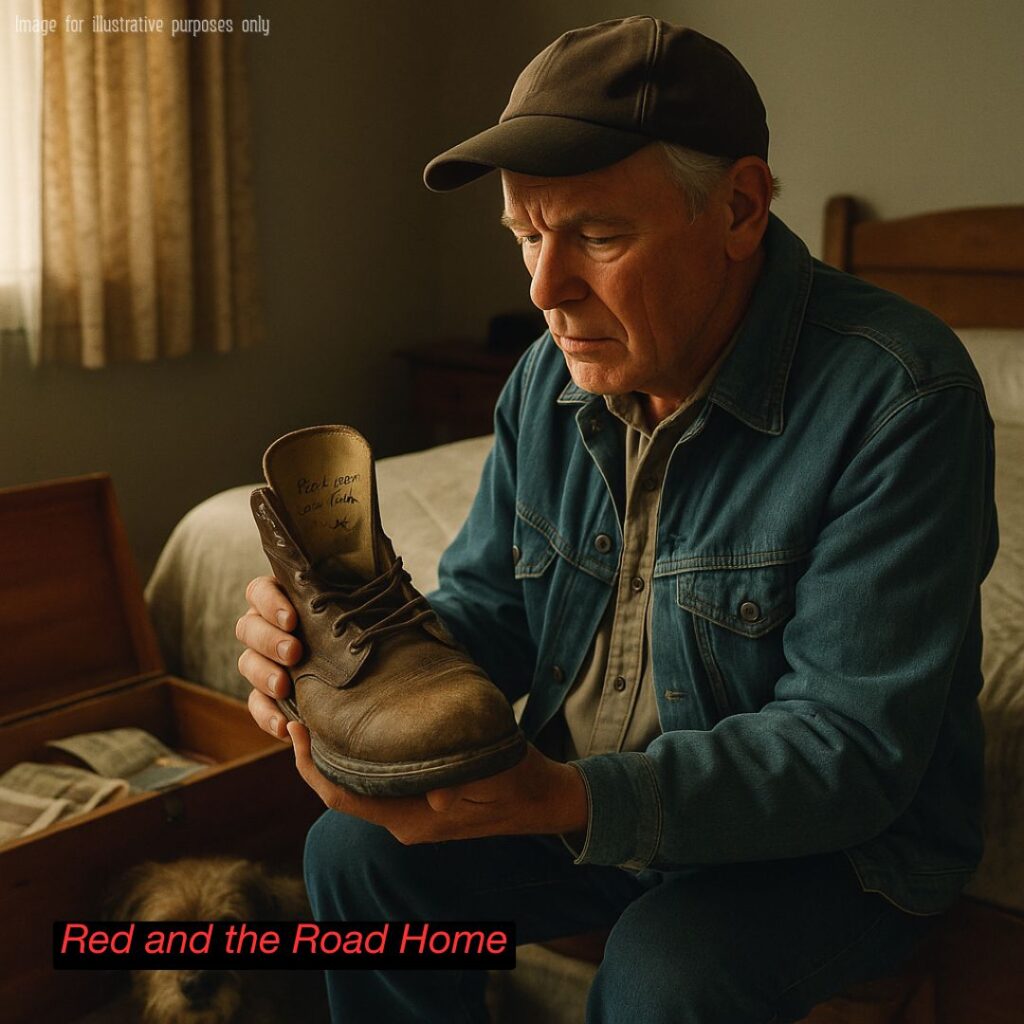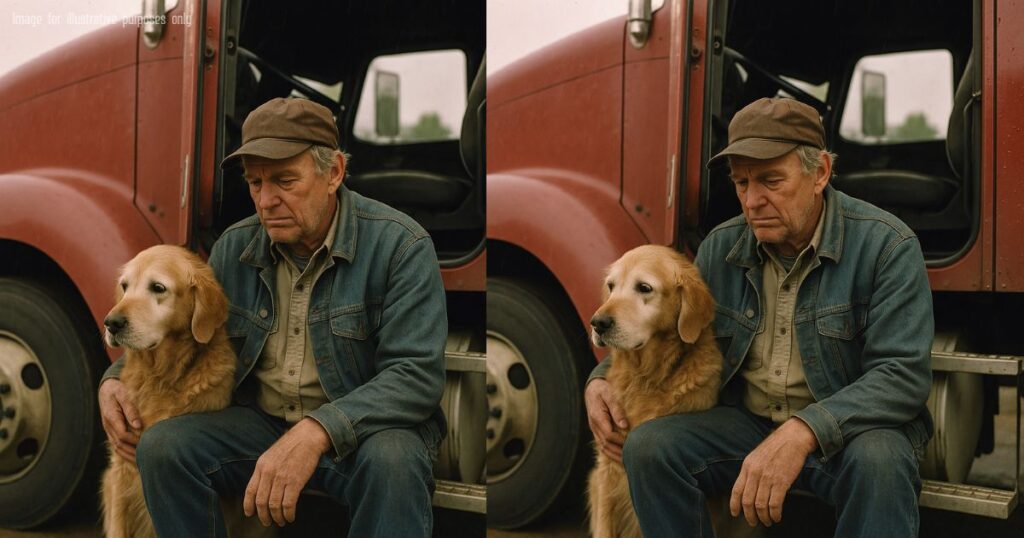
Part 3 – The Things We Leave Behind
The day I cleaned out Mary’s closet, I found her handwriting in a place I never expected — inside the tongue of my old Sunday boots.
I hadn’t planned on doing it that day.
It was cold. February cold. The kind that seeps through denim and into your knees like a warning. Diesel was sleeping in the cab, curled on Buck’s old quilt, snoring like he owned the place now.
I stood in front of the bedroom closet, coffee gone cold in my hand, and stared at her side like it still belonged to her. The house was quiet — not the peaceful kind, but the hollow kind. Where the floors don’t creak anymore because they’re tired of waiting.
Her robe was still hanging on the hook. Navy blue. Frayed at the cuffs. Smelled like lavender and time.
I pulled it down slow. Then came the cardigans. The sweaters she’d patched at the elbows. Her old yellow apron with a tiny burn hole near the hem from when she’d leaned too close to the stove making Sunday gravy.
I folded each one like I was tucking her in.
Then I reached the boots.
They were mine.
Brown leather. Scuffed at the toe. Laces knotted from years of stubbornness. I hadn’t worn them since her funeral. She always called them my “good man shoes.”
I almost tossed them in the pile. Almost.
But something made me sit down on the bed, boots in my lap like they were an old dog.
And that’s when I saw it.
Inside the tongue of the left boot, in faded ink:
“Find your way back. — M.”
I don’t remember her ever writing that. Don’t remember her sneaking into the garage to mark up my boots like a teenager carving initials into a tree. But the handwriting was hers. The curve of the “F,” the way she looped the “y.”
It hit me like a gut punch.
Find your way back.
Back to what?
To her?
To myself?
To the man I used to be before cancer and grief and too many miles in a truck with no destination?
I didn’t cry then.
I just sat there, holding that boot like it might warm me.
Diesel nudged the bedroom door open with his nose. His tail thumped once.
“Yeah,” I muttered. “I miss her too.”
That afternoon, I drove to the old community lot behind the church. It’s where we used to hold rummage sales and potlucks and awkward car washes run by bored teenagers. Mary ran the bake sale every fall — her pecan bars were famous three counties wide.
The lot was mostly weeds now.
But the bench was still there.
The one she used to sit on while the coffee percolated in a rusted urn, giving folks a place to rest between gossip and grace.
I sat down.
Diesel lay at my feet like Buck used to. His eyes scanned the parking lot like he was watching for someone who wouldn’t come.
Across the cracked pavement was the rec hall. Doors chained. Paint peeling. The sign still read: “Welcome to the Living Word.”
I remember one Sunday, back in the late ’80s, I forgot our anniversary. Mary didn’t yell. She just sat in the front pew during service and refused to hold my hand during the hymn.
That hurt worse than any yelling could’ve.
Afterward, she handed me a plate of banana bread and said, “You better start remembering the things that matter.”
I never forgot again.
I stayed there a while.
Watched the sky turn peach. Watched Diesel chase a squirrel halfway up a fence then act like he meant to stop. The world kept spinning — slower now, but still turning.
And I thought about what I’d leave behind when it’s my time.
The truck? It’ll rust.
The house? Someone else’ll paint it.
The tools? Probably sold off for fifty bucks at a yard sale.
But Mary’s note in that boot?
That’s a legacy no one will find but me.
And maybe that’s enough.
Later that evening, I opened the old cedar chest by the foot of the bed. I hadn’t touched it in years.
Inside were photo albums. Quilts. A black-and-white picture of my father at his welding bench. A Polaroid of me and Mary on our wedding day — she wore yellow. Said white was too “precious.”
Under it all was a little envelope, brittle and thin.
I opened it.
Three clippings fell out.
- A letter I wrote her in ’73 from a truck stop in El Paso.
- The receipt for the first diner we ever went to.
- And a newspaper photo — me and Buck, from a town fundraiser where we delivered supplies during a flood.
She kept it all.
The big, the small, the in-between.
Diesel curled beside the bed that night. Head on his paws. One eye half-open, like he wasn’t ready to sleep unless I did.
I turned off the lamp. Lay there in the dark, hand resting near the edge where Mary used to sleep.
I whispered, “I’m trying, darlin’. I don’t know if I’ll ever find my way back. But I’m trying.”
The wind brushed the window.
The house exhaled.
And in that silence, I didn’t feel alone.
ENDING:
It’s not the things we leave behind that matter most.
It’s who remembers why we kept them in the first place.


